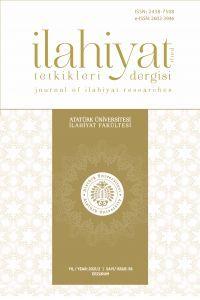Hakaret Suçu Çerçevesinde Tanzimat Sonrası Osmanlı Hukuku ve Türk Pozitif Hukuku Mukayesesi
Comparison of Post-Tanzimat Ottoman Law and Turkish Positive Law in terms of Insult
Author(s): Muhammed Emin KızılaySubject(s): History of Law, Islam studies, Penology, The Ottoman Empire
Published by: Atatürk Üniversitesi İlahiyat Fakültesi
Keywords: Ottoman Law; Lawmaking; Crimes Against Honor; Insult; Satm;
Summary/Abstract: Legal systems aim to protect a person's reputation as well as their material assets. Due to the place where Islam has positioned human beings, fiqh has also revealed norms that will protect human honor. Based on these norms for centuries in the field of judiciary, the Ottoman Empire began to legislate these norms with the influence of the West. In this context, attacks on human honor were also included in the texts of the law, and the courts were asked to handle the cases within the framework of these laws. In the laws, it is seen that insult crimes are regulated in accordance with the classical Hanafi fiqh. However, in law making, fiqh was used less by time, and Western systematics was taken as a basis in the division of crime. In today's Turkish positive law, it is seen that the crime of insult, which is regulated within the "crimes against honor", also follows this systematic and is influenced by the Ottoman positive law. In this study, the crime of insult will be discussed comparatively over the successive Hanafi fiqh, the laws of the Tanzimat period, the old Turkish Penal Code in some subjects and today's Turkish Penal Code laws.
Journal: İlahiyat Tetkikleri Dergisi
- Issue Year: 2021
- Issue No: 56
- Page Range: 47-70
- Page Count: 24
- Language: Turkish

